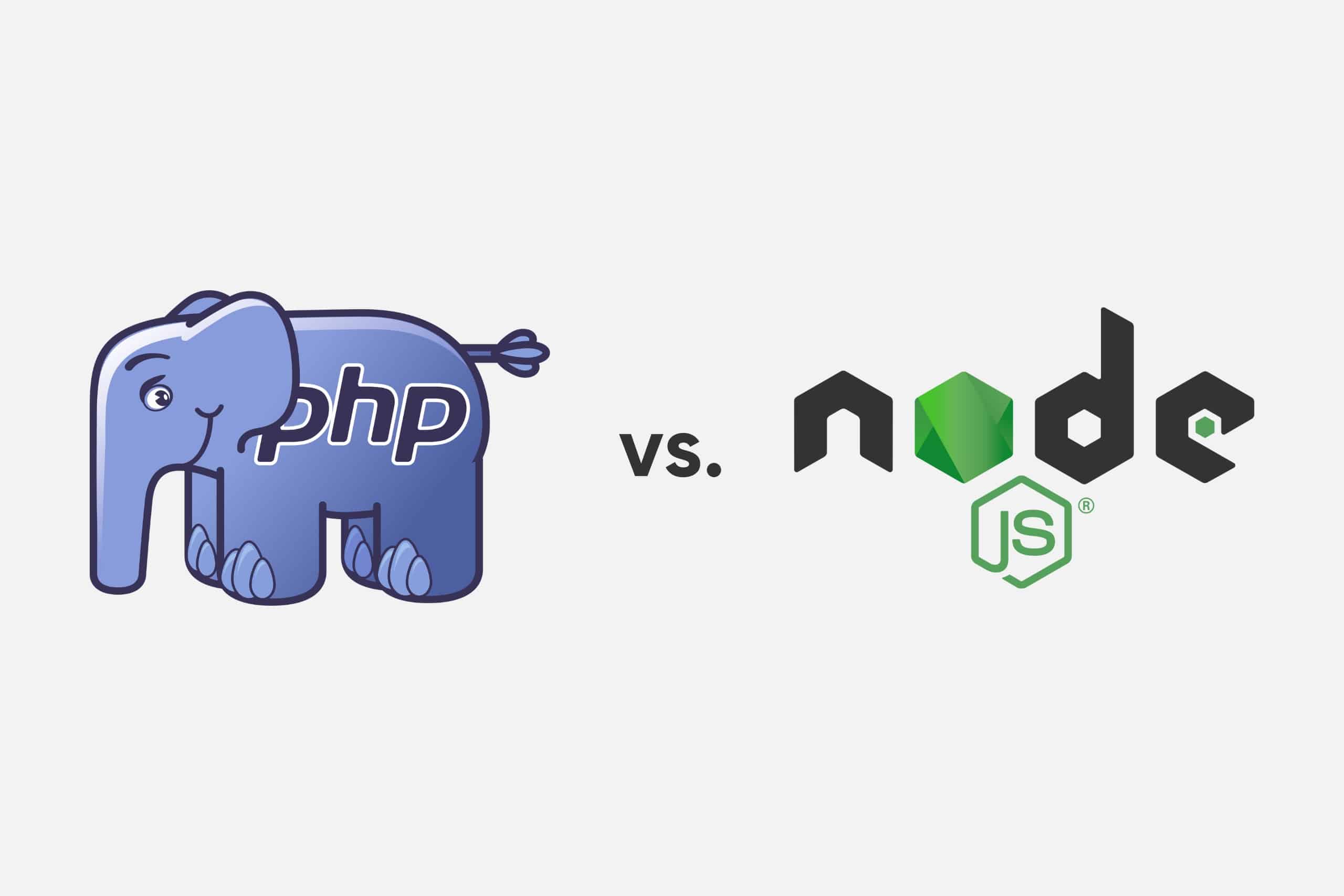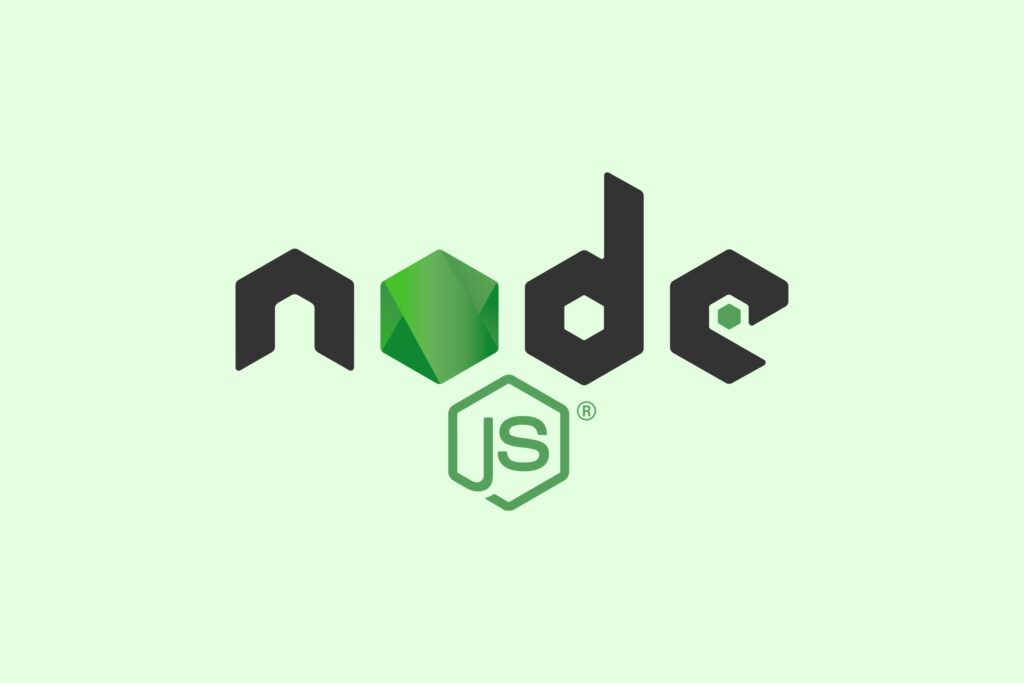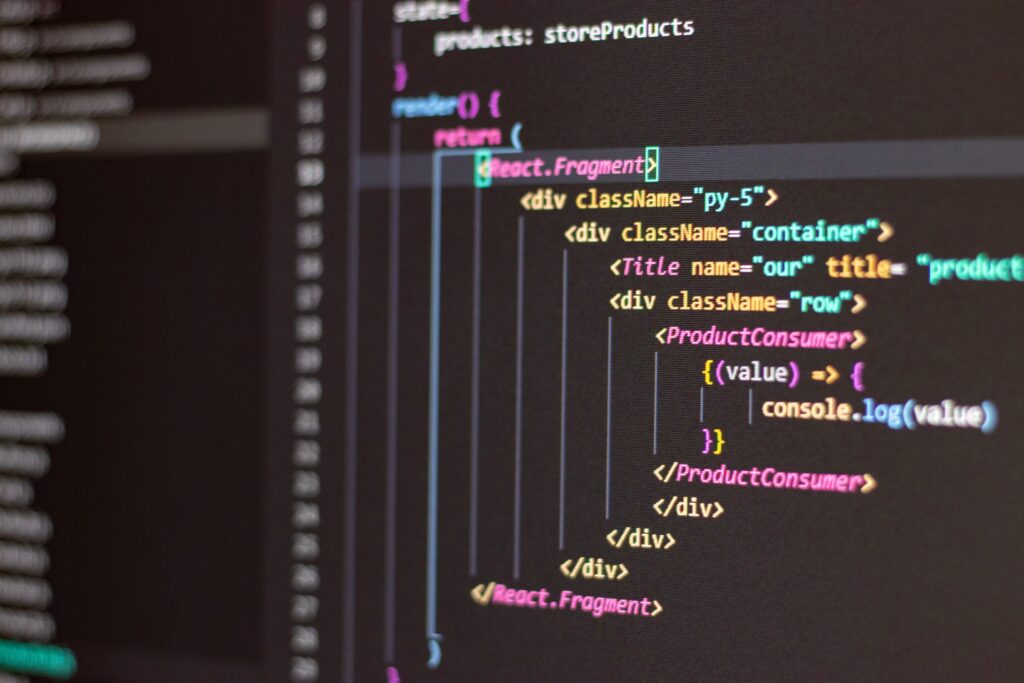
PHP vs Node JS: Which is Better For Building Websites in 2023? The digital landscape in 2023 is complex and vibrant, with a plethora of programming languages and technologies available to build your website. Among these, PHP and Node JS stand out as contenders for the top choice. PHP, a server-side scripting language, has been the backbone of countless websites for decades. On the other hand, Node JS, a runtime environment with the flexibility of JavaScript, has seen explosive growth since its inception in 2009.
The choice between these two technologies can dramatically impact your website's functionality, performance, and ease of development. It's essential to make an informed decision, considering your project's specific needs, your team's expertise, and future digital trends. In this blog post, we delve into the nuances of PHP and Node JS, weighing their pros and cons, examining use cases, and laying out their role in future-focused setups like headless CMS.
Whether you're a business owner seeking advice on your website's best tech stack or a developer trying to expand your knowledge about these two widely used technologies, we aim to provide a comprehensive, unbiased guide.
What is PHP?

PHP, or 'PHP: Hypertext Preprocessor,' is a server-side scripting language designed specifically for web development. Introduced in 1994, PHP has built a strong reputation for its simplicity, flexibility, and wide-ranging support for various databases. It is especially prevalent in the world of content management systems (CMS) - dominant platforms like WordPress and Drupal were built on PHP.
Benefits of Using PHP
PHP is highly flexible and forgiving, making it easier for beginners to pick up. It runs on various platforms (Windows, Linux, UNIX, Mac OS X, etc.) and is compatible with all leading servers like Apache, IIS, and more. Notably, it supports a wide array of databases, thus making PHP a valuable tool for dynamic website creation.
PHP Use Cases
Use cases for PHP include CMS development, creating e-commerce systems, dynamic website content, and web applications. WordPress, the world's most popular CMS, was built with PHP, signifying its considerable power in the realm of web development.
PHP Drawbacks and Limitations
Despite its advantages, PHP has limitations. Its leniency can lead to messy or unoptimized code if developers are not disciplined. It's not ideal for real-time applications like instant messaging or gaming due to its synchronous nature.
What is Node JS?

Node JS is a cross-platform runtime environment that allows developers to use JavaScript to write command line tools and server-side scripting, making website and server development more seamless. Introduced in 2009, Node JS is not a traditional programming language but an environment that executes JavaScript code outside of a browser.
Benefits of Using Node JS
The benefits of Node JS include speed, scalability, enhanced productivity due to JavaScript consistency on both the client and server side, an active community of developers, and improved performance for real-time applications.
Leveraging the V8 JavaScript engine from Google Chrome, Node JS ensures that JavaScript code runs with astonishing speed. Since it utilizes JavaScript for both front-end and back-end development, it provides a unified programming base, simplifying the development process. Node JS follows an event-driven, non-blocking I/O model, making it an exceptional choice for real-time applications like live streaming and gaming.
Node JS Use Cases
Use cases for Node JS are extensive and include developing scalable network applications, server-side web applications, real-time web APIs, and collaborative tools.
PHP vs Node JS for Website Development

Now that we've covered the benefits, drawbacks, and use cases of PHP and Node JS, let's get into the meat of today's topic: Which is better for modern web development?
PHP vs Node JS: Performance
As we mentioned before, Node JS uses the V8 engine from Google, allowing it to execute JavaScript code with remarkable speed. Its event-driven, non-blocking I/O model makes it highly efficient for handling concurrent requests. On the other hand, PHP, a mature language with several performance-enhancing updates, can operate swiftly for web-specific tasks. However, it's synchronous and tends to slow down under heavy loads.
PHP vs Node JS: Development Speed
Thanks to JavaScript's use on both the client and server side, Node JS tends to speed up development by minimizing the discrepancy between front-end and back-end languages. Conversely, PHP’s learning curve is not as steep, leading to quicker mastery and potentially faster deployment for newer teams.
PHP vs Node JS: Data Handling, Databases, and Server-Side Operations
PHP offers wide-ranging support for databases, including MySQL, Oracle, and PostgreSQL. However, it deals with requests using a multi-threaded, blocking I/O model. Node JS, while being compatible with MongoDB, CouchDB, and other NoSQL databases, uses an event-driven, non-blocking I/O model ideal for handling real-time applications, chats, and highly concurrent scenarios.
PHP vs Node JS: Complexity, Learning Curve, and Community Support
PHP is simpler and easier to learn, especially for beginners. Its community is extensive and support wide-ranging. Node JS, being based on JavaScript, might be easier for front-end developers to work with, but its asynchronous programming model could be complex for new developers. It also has a growing, although smaller, community.
PHP vs Node JS: Using a Headless CMS
Given its intended function for the web, PHP has been a preferred choice for traditional CMSs like WordPress and Drupal. However, Node JS's ability to deal with API calls efficiently makes it a popular choice for working with decoupled or 'headless' CMS setups, demonstrating its increasing relevance in current and future web development trends.
Using Node JS and PHP with a Headless CMS

The term headless when talking about content management systems is a relatively new concept and can seem foreign (maybe even scary) to a lot of people. However, the importance of headless CMSs as a future web development standard cannot be understated, which is why it's crucial we cover the basics of headless setups.
What is a Headless CMS?
A headless CMS is a back-end-only content management system built as a content repository, allowing content to be served via Application Programming Interfaces (APIs) to any front-end system. In contrast to traditional CMSs like WordPress, a headless CMS delivers raw content and leaves the presentation to the client side, perfect for delivering seamless experiences across multiple channels such as mobile, web, IoT devices, and more.
Put simply, a headless CMS, conversely to WordPress, does not house the back end and front end in one place; it is ONLY the back end. Modern websites use a headless CMS to generate their content and data while using Node JS or PHP (more often Node JS) frameworks to develop the front end of the website in a separate location for added security, better performance, increased page speed, and scalability.
APIs allow developers to serve websites easily in multiple forms, such as websites, phone and tablet apps, and more. If you've ever purchased something from a company via their website and iPhone app, you have most likely used a platform built with a headless CMS.
Using PHP in Headless CMS Setups
PHP, being fundamental to traditional CMSs, has worked its way into some headless CMS platforms due to its strong foundations in handling and delivering web content. Furthermore, PHP’s extensive history and solid community support mean that any issues encountered can likely be resolved swiftly. However, PHP can run into complications when dealing with heavy, concurrent data requests typical in headless CMS scenarios.
Using Node JS in Headless CMS Setups
Node JS, due to its fast, efficient handling of asynchronous calls and scalable network applications, suits headless CMS architectures well. Its non-blocking I/O model allows for efficient real-time data access and manipulation, which is crucial in multi-channel content delivery. Node JS also complements modern front-end frameworks like React.js or Angular.js that often constitute the 'head' in such setups.
PHP vs Node JS For Headless CMS Setups
While PHP can perform effectively in headless CMS, Node JS appears to have the upper hand due to its exceptional handling of asynchronous data. Node JS' event-driven architecture allows for superior speed and scalability when serving concurrent multi-channel requests. Furthermore, the ability of Node JS to work efficiently with modern JavaScript frameworks makes it more adaptable and extensible for headless CMS structures. However, one must not discount PHP's proven reliability, extensive community support, and potential cost-effectiveness.
SEO Considerations When Using PHP and Node JS

Search Engine Optimization (SEO) should never be overlooked in the web development process. In fact, many successful developers will tell you that forming your development process around SEO best practices is the best way to build a user-friendly, traffic-generating, and built-to-stand-the-test-of-time website. Let's get into how choosing your web stack will influence SEO.
PHP vs Node JS: SEO Performance and Site Speed
The speed of a website has significant implications for both user experience and SEO; search engines tend to prioritize faster websites in their rankings. PHP, which is known for delivering high-speed performance in specific web tasks, can drive optimal loading times. However, in a resource-intensive, concurrent request environment, Node JS may deliver faster performance due to its non-blocking, event-driven architecture.
How to Optimize SEO Performance With Either PHP or Node JS
Regardless of whether you choose PHP or Node JS, several practices can optimize SEO performance.
- Efficient Code: Writing clean, efficient code is critical. PHP's simplicity can lead to better-optimized code, while Node JS allows JavaScript code sharing between the server and client, reducing redundancy.
- Server Response Time: Minimize server response time by leveraging Node JS' non-blocking I/O model or by optimizing PHP for quick responses.
- Dynamic Rendering: For JavaScript-heavy sites where crawlers may have difficulty processing, Node JS enables dynamic rendering - serving static HTML to crawlers while users see the dynamic JS version.
- User Experience: Prioritize user experience because search algorithms do. Both Node JS and PHP can deliver high-quality, interactive applications.
- Keep Up to Date: Part of good SEO is being able to adapt quickly to changes in how search engines rank web pages. Staying updated with the latest version of the language/framework you’re using (be it PHP or Node JS) can ensure compatibility and optimal performance.
Remember, SEO is more than just speed. It involves accessibility, meaningful content, readability, and working with search engine algorithms to maximize visibility.
See Also: Top 10 Ranking Factors for SEO
In Summary
Choosing between PHP and Node JS for website development isn't a straightforward process; it depends on multiple factors, including your project requirements, type of website, functionalities needed, and your team's experience and skill set.
PHP, with its simplicity, strong database support, and suitability for content management systems, has proven its power in web development over the years. However, its synchronous nature and difficulties with concurrency could hinder it in modern, data-heavy applications.
Node JS, leveraging JavaScript ubiquity, excels in real-time applications and scalable network scenarios, making it increasingly relevant in current and future trends such as headless CMS. However, its non-blocking I/O model might be complex for some developers to adapt to.
When discussing PHP and Node JS in the context of SEO, both languages can be optimized for excellent search engine performance. It's more about the way the languages are used and the SEO practices implemented.
In conclusion, it's about taking a strategic approach and aligning the technology choice with your project's needs, future scalability, and the expertise of your development team. The right fit could be either PHP, Node JS or even a combination of the two. Whichever language you choose, strive for clean, optimizable code and keep the user experience at the forefront of all decisions.
What? I Want a Definitive Answer!
If I were to state definitively that one is better than the other PERIOD, I would be a fool. So, instead, I can make suggestions based on your use case, experience level, development requirements, and overall desired outcome.
When PHP is Better
In my personal experience, I have primarily used PHP for all of my websites since I am an avid WordPress user, developer, and superfan. My projects mostly consist of working on client websites for small to mid-sized businesses, small to medium-sized eCommerce stores, and the occasional digital portfolio. In other words, none of my projects require that much computing power or complex operations (that's not to discount the power and ability of PHP).
If you're a novice HTML and CSS developer with no JavaScript experience, I would recommend starting with PHP and learning how to develop with WordPress since it takes the majority share of all websites using a CMS on the internet, so there are millions of resources available. If you're a company with a decent-sized website and you need it to be reliable and compatible with a huge array of browsers, a PHP setup will suffice just fine, assuming your developers used efficient methods of programming your website.
On the other hand, if you're starting from scratch on a web application and have plans to scale quickly in the coming years, PHP might not be the best option, but please take this with a grain of salt as it is merely my opinion.
When Node JS is Better
Admittedly, I am actively learning how to build with frameworks built on Node JS so I can prepare for the future. As of now, I can't justify switching any client sites to Node JS because there is no benefit to using Node JS that outweighs the fact that their site has already been built and is live. But again, none of our clients would benefit because they don't need anything Node JS offers that PHP doesn't.
However, Node JS might be your best option if you are experienced with HTML, CSS, JavaScript, and PHP (simply for development experience) and are attempting to build a modern web application that needs to send and receive data asynchronously on a large scale. For instance, if you are building an eCommerce platform with custom capabilities that you know will someday have millions of products, garner thousands of monthly visits and purchases, and eventually have a phone app where users can make purchases, it might be a wise idea to use a headless CMS on a highly scalable platform, like AWS, with a fast and efficient front-end built using Node JS.
If you are looking to create a social media platform or other online web application that involves a lot of user interactions or data inputs, Node JS might better serve your case. Alternatively, if you're like me and you just want to nerd out over cutting-edge technology, there's no harm in learning how to use Node JS for fun. After all, you never know what doors will open when stepping outside your comfort zone.
The Bottom Line
Conclusively, there is no right answer to which is better. Don't simply read this blog and make up your mind either; do some research and check out live examples of websites built using Node JS and live examples of websites built with PHP. Then, weigh the pros and cons of your particular situation. At the end of the day, the best language is the one that will allow you to achieve your desired outcome.




